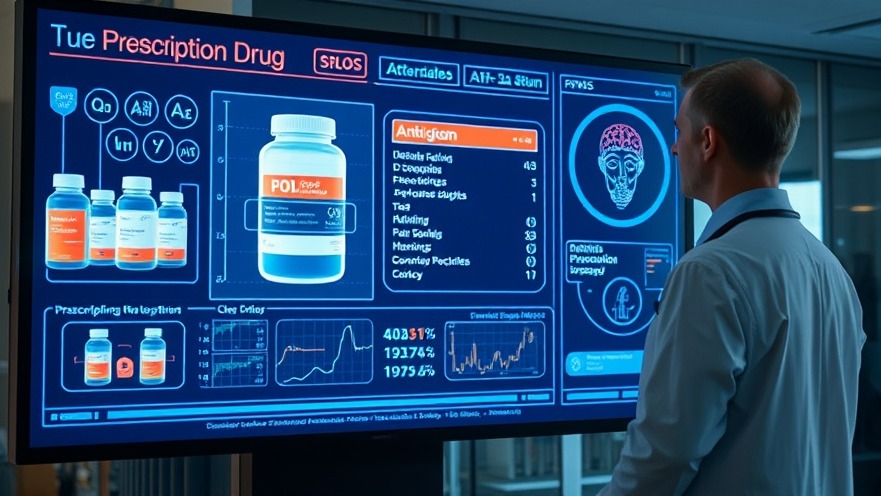
The Rise of AI in Drug Diversion Prevention: A Game Changer in Healthcare
In the complex world of healthcare, ensuring the integrity of medication management is critical—not only for patient care but also for safeguarding institutions. With the advent of artificial intelligence (AI), drug diversion prevention has evolved, transforming from a reactive process into a proactive strategy that significantly improves compliance and operational performance. This shift, according to experts at St. Jude Children’s Research Hospital, is no longer considered a luxury but rather an essential component of patient care.
Understanding the Impact of AI on Drug Diversion Detection
AI technologies are revolutionizing how healthcare organizations like St. Jude monitor controlled substances. Gone are the days when tracking medication usage meant relying on manual processes fraught with uncertainty and inefficiency. Today’s AI-enabled solutions are capable of analyzing patterns and discrepancies in medication handling, which supports various applications ranging from billing to policy development. For instance, at St. Jude, around 80 behavioral-pattern alerts have been established to detect not just missing medications but also suspicious activities indicative of possible drug diversion.
The Perceived IT Burden: Overcoming Misconceptions
Despite its advantages, the adoption of AI is often hampered by the perception of an ongoing IT burden. Many healthcare providers fear that the implementation of new technologies will place undue pressure on their already stretched IT resources. However, the initial setup, while demanding, ultimately leads to a reduction in long-term workload. The use of AI-powered monitoring tools means that IT teams can focus on enhancing patient care rather than spending excessive time on manual reporting and data retrieval.
The Importance of Accurate Data for Effective AI
While AI has the potential to enhance drug diversion detection, it relies heavily on the quality of input data. Inaccurate or incomplete data can amplify existing problems, leading to misguided conclusions. At St. Jude, the implementation of AI systems necessitates clean data and diligent human oversight. This synergy ensures that the technology works effectively, enhancing overall patient safety and institutional liability management while providing a reliable source for compliance and audit practices.
AI as a Transformative Element in Healthcare
In a single year alone, St. Jude managed over 15 million controlled substances transactions. The scale of operations underscores the necessity for sophisticated monitoring techniques. AI serves as a powerful tool, akin to a magnet that simplifies the arduous task of identifying anomalies in a vast dataset. The complexities of drug management can be effectively navigated with AI, making it an invaluable asset in the modern healthcare landscape.
Looking Forward: The Future of AI in Healthcare
As technology continues to evolve, embracing AI in drug diversion prevention programs will likely become a standard practice across various healthcare settings. With increasing regulatory expectations around medication management, healthcare practitioners must adapt to integrate these systems seamlessly into their workflows. By doing so, they can ensure they remain compliant while focusing on what truly matters: providing excellence in patient care.
Incorporating AI into drug diversion prevention systems not only enhances operational efficiency but also strengthens a practice's standing in the community as a leader in compliance and patient safety. For concierge health practitioners who feel overwhelmed by technology, understanding the fundamentals of AI and its application in drug diversion can provide a substantial advantage in enhancing both their practice and patient trust.
As we look to the future, embracing AI is about more than just staying compliant; it’s about leveraging technology to offer the best possible care for patients while maintaining the integrity of healthcare systems.
For healthcare practitioners looking to grow their practice and strengthen community ties, taking the time to explore AI's benefits can lead to significant improvements in both operational outcomes and patient satisfaction. Start the journey today by adopting AI solutions tailored to your medication management needs.
 Add Row
Add Row  Add
Add 




Write A Comment